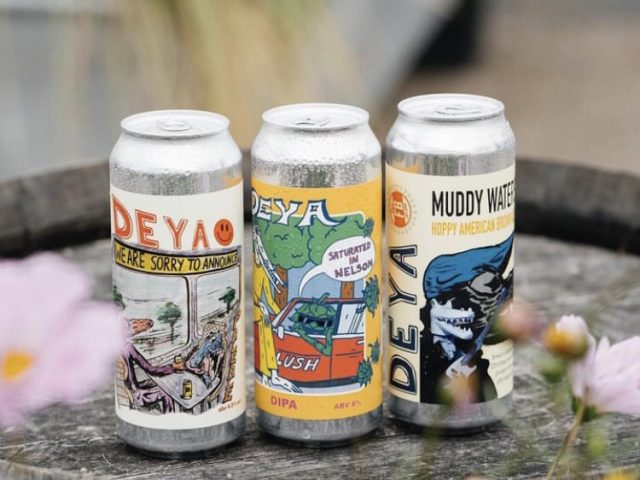This website uses cookies so that we can provide you with the best user experience possible. Cookie information is stored in your browser and performs functions such as recognising you when you return to our website and helping our team to understand which sections of the website you find most interesting and useful.
Deya Brewing Co invests in peatland to help offset carbon footprint
Deya Brewing Company has invested in 65 hectares (0.25 sq mile) of Welsh peatland in a bid to become more sustainable.

The Cheltenham-based brewer told the BBC that restoring the land, which contains carbon, was part of a wider plan to offset its emissions and ultimately reduce its carbon footprint.
Deya, which is one of the largest British craft beer brewers, makes approximately a million and a half pints of beer every year and often uses hop varieties from America and New Zealand.
Deya Brewing Co owner Theo Freyne, said: “Brewing in general is not a particularly sustainable business operation, but we are doing what we can to try and counteract that as much as possible.”
Snowdonia National Park’s peatland manager Rachel Harvey said: “Peatlands currently pump out greenhouse gases, so we really need to put a cap on those greenhouse gas emissions.”
However, the challenge is not small and the team at Deya knows that it will take 35 years for the peatland it has bought to offset around three years of the brewery’s emissions. Despite this, after having a carbon audit, it has pledged to look into making the brewery as sustainable as possible, Around 70-80% of the company’s emissions come from suppliers and transport, but the brewer has stated it is determined to make changes.
Deya Brewing Co sustainability lead Ben Woodliffe explained: “There’s a whole heap of emissions associated with fertilisers that are used to grow malt and hops.”
Freyne added: “There’s opportunity to make it [brewing] more sustainable, by looking at our own processes and looking at what we purchase.”
Deya is now monitoring its emissions every month and has already started to make changes as well as also looking to the long term. The brewer is also committed to staying its carbon footprint on each can of beer.
Related news
UK Christmas lights could buy 14 million mulled wines
Nicolas Feuillatte welcomes new year with new UK importer
SWR: lighter bottles for entry level wines is 'the wrong message'

